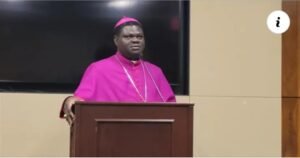Sudan army declines peace talks in Ethiopia, accusing Kenya of bias

Sudan’s government has refused to participate in a regional meeting held in Ethiopia aimed at resolving the nearly three-month-long violent conflict. The Sudanese government accused Kenya, the host and chair of the talks, of showing favoritism towards the rival paramilitary groups involved in the fighting.
The conflict, which escalated into a full-scale war in mid-April, is a result of a power struggle between Sudanese army chief Abdel Fattah al-Burhan and his former deputy, Mohamed Hamdan Daglo, commander of the paramilitary Rapid Support Forces (RSF). The ongoing violence has claimed thousands of lives and displaced millions of people.
The regional bloc, Intergovernmental Authority on Development (IGAD), had invited both factions to attend the meeting in Ethiopia’s capital, Addis Ababa, despite the ongoing hostilities. However, neither al-Burhan nor Daglo personally attended the talks. The RSF sent a representative while the quartet meeting, led by Kenya, South Sudan, Djibouti, and Ethiopia, took place.
According to the Armed Conflict Location and Event Data Project, the violence has claimed around 3,000 lives since April 15. However, the actual death toll is believed to be higher due to limited access to affected areas. Additionally, three million people have been internally displaced or forced to flee across borders, according to the International Organization for Migration.
Multiple diplomatic efforts to halt the fighting have only resulted in temporary ceasefires. The United Nations warned on Sunday that Sudan is on the brink of a full-scale civil war, posing a significant threat to the stability of the entire region.
Previous ceasefire agreements were brokered by Saudi Arabia and the United States. However, this time, the East African bloc is taking the lead in resolving the conflict. Nevertheless, Sudan’s foreign ministry announced that it would not participate in the talks until Kenya was removed as the chair, accusing Kenyan President William Ruto of bias.
In response to the Sudanese government’s absence, the quartet expressed regret and called for intensified efforts to arrange a face-to-face meeting between the rival leaders. They also urged the generals to immediately cease the violence and sign an unconditional and indefinite ceasefire.
IGAD announced its intention to request the African Union to consider deploying the East Africa Standby Force, usually involved in election observer missions, to Sudan for the protection of civilians and to facilitate humanitarian access.
Mubarak Ardol, a former rebel leader who now aligns with al-Burhan, criticized the meeting as part of a plan to occupy Sudan and promote military interference. Meanwhile, US Assistant Secretary of State for African Affairs, Molly Phee, emphasized the need for an immediate end to the fighting and called on countries in the region to prevent external interference and military support that could exacerbate and prolong the conflict.
Experts suggest that both the Sudanese army and the RSF receive support from external actors. Egypt supports al-Burhan, while the United Arab Emirates and Russia’s Wagner mercenary group are reportedly backing Daglo’s efforts.
On the ground, reports from residents indicated ongoing battles and airstrikes in various areas of Khartoum. Witnesses also reported fighting in El-Obeid, the capital of North Kordofan, located approximately 350 kilometers (220 miles) south of Khartoum. Additionally, an army source confirmed that troops in Blue Nile state near Ethiopia repelled an attack by rebel forces.







